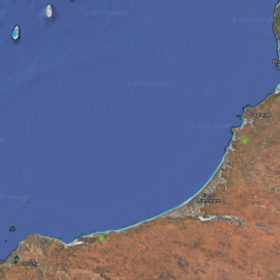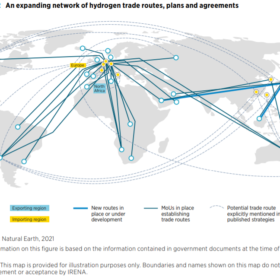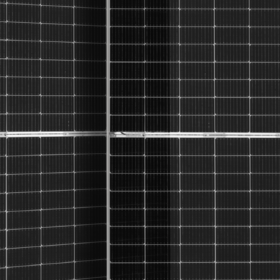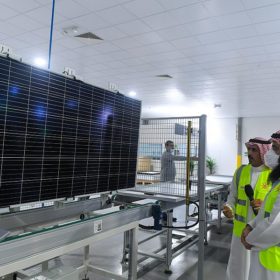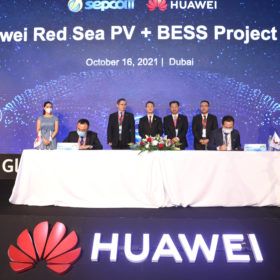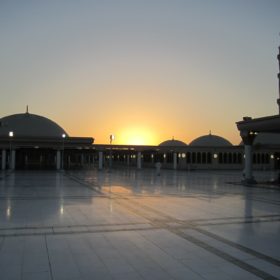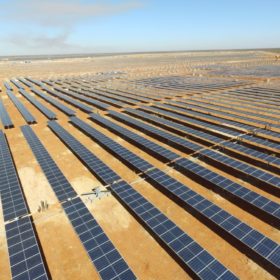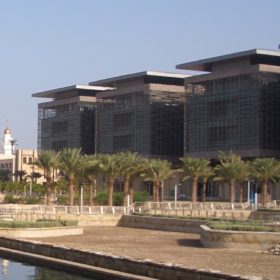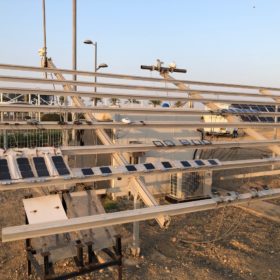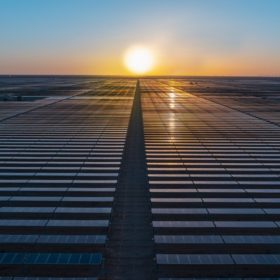Singapore sovereign wealth fund backs Australian green hydrogen developer
The InterContinental Energy company behind two proposed green hydrogen megaprojects in Western Australia – the 26GW Asian Renewable Energy Hub and the 50GW Western Green Energy Hub – has received the backing of Singapore’s US$744 billion sovereign wealth fund GIC.
Green hydrogen could disrupt global trade, bilateral energy relations
While there are still many uncertainties as to the way in which hydrogen trade might evolve and change economic ties and political dynamics between countries, experts agree that green hydrogen can bring winds of change to the global energy arena. According to the International Renewable Energy Agency, significant geoeconomic and geopolitical shifts are just around the corner.
Illustrating the n-type advantage
In a new white paper, Chinese PV manufacturer JinkoSolar demonstrates how its latest ‘Tiger Neo’ module, featuring the 182mm n-type TOPCon cells, achieves lower energy costs. Based on total project costs for various scenarios in China, the Middle East and Europe, Jinko calculates advantages arising from both the cell technology and its chosen wafer format.
Solar module factory with 1.2 GW capacity inaugurated in Saudi Arabia
The production equipment for the factory was provided by Spain’s Mondragon Assembly. The facility is currently the largest module factory in the Middle East.
Huawei wins major energy storage project contract in Saudi Arabia
Chinese tech giant Huawei Digital Power has signed a contract with China’s SEPCOIII, a construction and engineering company and power plant operator, for a 400 MW PV plus 1300 MWh battery energy storage project in Saudi Arabia. Developed by ACWA Power, with SEPCOIII serving as general contractor and handling EPC services, the Red Sea Project […]
Lowest shortlisted bid in Saudi third PV tender was $0.0148/kWh
The shortlisted developers are Jinko Power, Total, ACWA Power, Alfanar, and a consortium formed by Masdar and EDF.
PVH supplies trackers to 300 MW PV project in Saudi Arabia
PV Hardware (PVH) is supplying its PV trackers to China Energy Engineering Group (CEEC) for a 300 MW PV project in Rabigh, Mecca.
Novel battery chemistry for zinc-ion batteries
Scientists have demonstrated a zinc-ion battery that overcomes many of the challenges for this technology. By working with a highly-concentrated salt solution as the electrolyte, the group was able to achieve stability over more than 2,000 cycles combined with a strong electric performance. The group says that its work opens up “a viable route to developing aqueous batteries for emerging electrochemical energy storage applications.”
Tracing the roots of fill factor degradation in perovskite-silicon tandem solar cells
Scientists in Saudi Arabia have conducted one of the longest tests on the stability of perovskite-silicon tandem solar cells. According to their findings, the most affected parameter under the hot and humid climate of the region is the device fill factor, which dropped from 80% to 50% in just six months.
Financial close for 1.5 GW solar PV project in Saudi Arabia
The Sudair Solar PV plant is the first project under the renewable energy program run by Saudi Arabia’s Public Investment Fund. The facility is owned by energy giants ACWA Power and Aramco, as well as electricity holding company Badeel.
